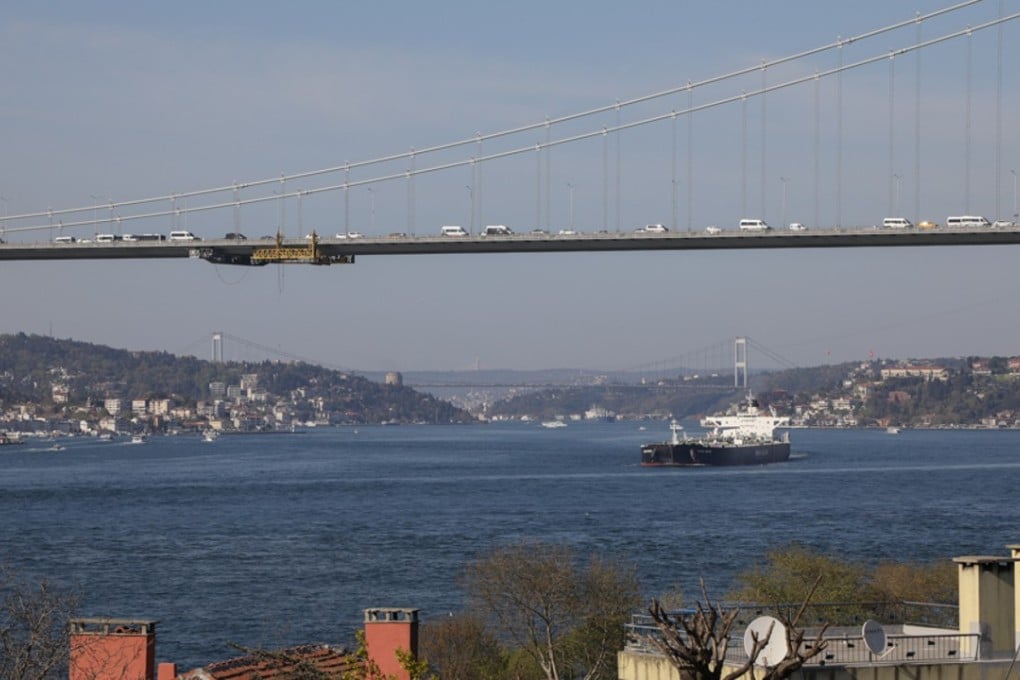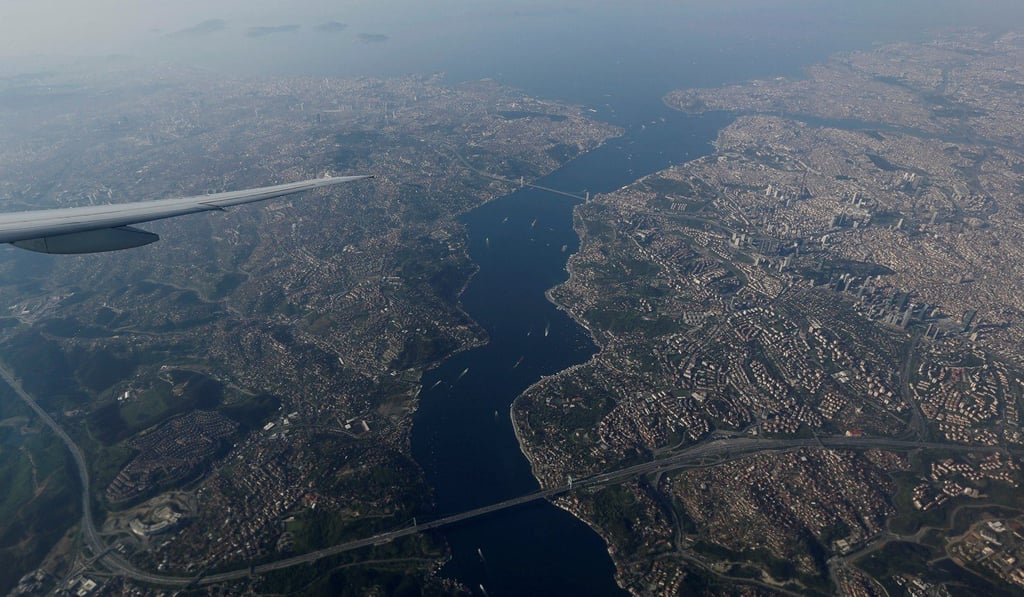How Istanbul’s man-made canal project could trigger an arms race in the Black Sea – and why China is watching closely
The Kanal Istanbul project will not be subject to the international treaty that limits the access of warships to the strategically pivotal waters in central Europe

In the conservative Istanbul neighbourhood of Üsküdar, couples sit near the July 15 Martyrs bridge and sip cups of tea as oil tankers and cargo ships pass. The sight is common for the city’s residents: every day about 115 vessels cross the Bosphorus Strait.
Accidents can happen in this narrow natural waterway that divides the Turkish city’s European and Asian sides, and links the Black Sea to the Marmara Sea.
In April, a cargo ship failed to stop and crashed into an 18th-century Ottoman mansion. In 1979, two tankers collided and caused an oil spill that took weeks to remedy, damaging the environment, endangering public safety and closing down the Bosphorus.
The Turkish straits – including the Dardanelles, the Bosphorus and the Marmara Sea – are unique: they connect the Mediterranean and Aegean seas to the Black Sea states of Russia, Ukraine, Bulgaria, Romania and Georgia.
Commercial vessels and warships must abide by the Montreux Convention of 1936, which set out several rules.
